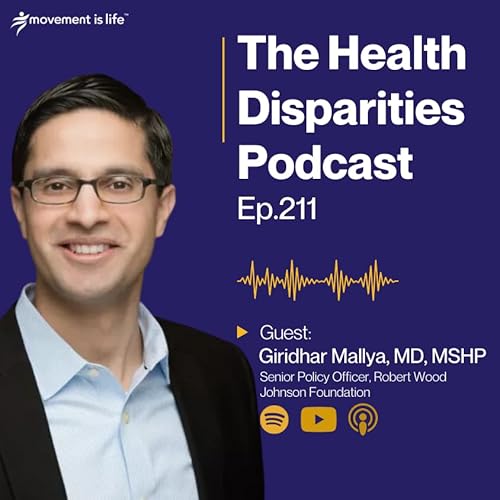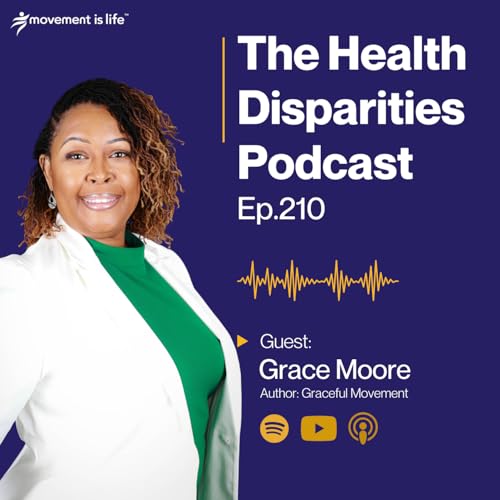What does it take to rise after life tells you “you can’t”? In this episode of The Health Disparities Podcast, we sit down with Grace Moore—Financial Empowerment Specialist, Founder, Speaker, and 2025 Movement Is Life Health Summit Speaker—whose journey is a powerful testament to resilience, faith, and the transformative force of mindset.
At just 17, Grace was told she would never walk again. After waking from a nap with her left leg paralyzed, she faced a defining crossroads: accept limitation or choose possibility. She chose movement—of the body, the mind, and the spirit. Today, Grace speaks from the lens of the patient, sharing what it looks like to keep moving forward while living with daily pain. Her message is simple but profound: we can choose to be “up and able” rather than “down and defeated.”
Grace also brings her expertise in financial wellness to the conversation, highlighting how financial empowerment—especially for seniors—directly connects to health equity, stability, and community well‑being. She breaks down the barriers people face, the myths that hold them back, and the power of language to either uplift or limit our lives.
In this episode, Grace opens up about:
• Her journey from paralysis to purpose
• How mindset can shift the trajectory of your life
• Why financial empowerment is a health equity issue
• The importance of speaking life into yourself and others
• Her upcoming journal, Graceful Movement, and how it helps readers embrace pain with compassion and courage
Grace’s story is a reminder that movement isn’t just physical—it’s emotional, mental, and deeply personal. Her voice is one of hope, empowerment, and unwavering belief in what’s possible.
Never miss an episode—subscribe to The Health Disparities Podcast on Apple Podcasts, YouTube, or wherever you listen.

 Feb 4 202631 min
Feb 4 202631 min 40 min
40 min 30 min
30 min 44 min
44 min 34 min
34 min Nov 26 202527 min
Nov 26 202527 min 21 min
21 min
